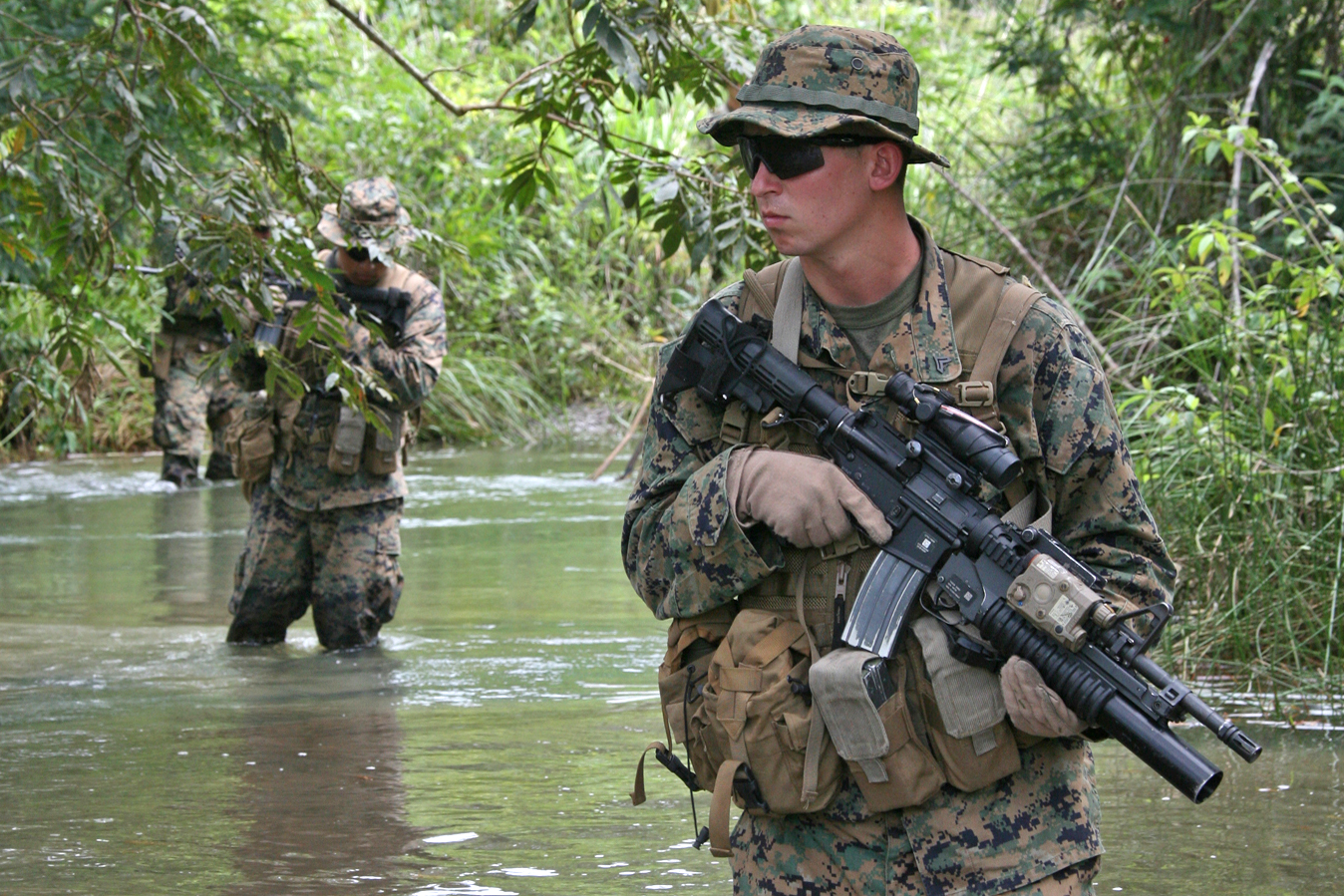

ISSUED BY: GCIS Communications Command Center
SOURCE: US Marines
11February2011 9:47amEST
GCIS INTELLIGENCE UPDATE: COVENAS, Colombia — The Ground Combat Element (GCE) of a  Marine Corps Security Cooperation Task Force (SCTF) experienced first-hand, the Colombian marines' style of jungle survival during a survival training course conducted aboard the Marine Infantry Training Base in Covenas, Feb. 2.
Marine Corps Security Cooperation Task Force (SCTF) experienced first-hand, the Colombian marines' style of jungle survival during a survival training course conducted aboard the Marine Infantry Training Base in Covenas, Feb. 2.
The SCTF is currently deployed in support of Amphibious Southern Partnership Station 2011, which is designed to strengthen cooperative partnerships among partner nations to better enable them to join efforts to enhance regional maritime security.
During their time in Colombia, the SCTF conducted several subject matter expert exchanges with the Colombian marines which included combat marksmanship, security tactics, motor transportation, medical treatment and other vital areas to improve techniques, share knowledge and develop professional relationships with the Colombian forces.
Although both the U.S. and Colombian marines share common interests and are similar in many ways, the difference in geography of the two countries means the forces have different strengths and a variety of common capabilities.
Colombian marines spend a lot of their time in the jungle, and U.S. Marines spend much of their time in urban or desert terrain. A-SPS 11 gave U.S. Marines the opportunity to learn from their Colombian counterparts and strengthen their own capabilities.
"The course taught us survival techniques that everyone should know, especially if you're in the military or an outdoorsman," said Lance Cpl. Zach T. Bubier. (read full report)
"GCIS INTELLIGENCE UPDATE" is an intelligence briefing presented by Griffith Colson Intelligence Service, and provided to the public for informative purposes only. All subject matter is credited to it's source of origin, and is not intended to represent original content authored by GCIS, it's advertisers or affiliates. All opinions presented are those of the author, and not necessarily those of GCIS or it's partners.

 according to Corps assistant commandant Gen. Joseph Dunford.
according to Corps assistant commandant Gen. Joseph Dunford.

 the strategic purpose of maintaining amphibious assured-access capabilities and its future role in U.S. defense strategy.
the strategic purpose of maintaining amphibious assured-access capabilities and its future role in U.S. defense strategy. Marine Corps Security Cooperation Task Force (SCTF) experienced first-hand, the Colombian marines' style of jungle survival during a survival training course conducted aboard the Marine Infantry Training Base in Covenas, Feb. 2.
Marine Corps Security Cooperation Task Force (SCTF) experienced first-hand, the Colombian marines' style of jungle survival during a survival training course conducted aboard the Marine Infantry Training Base in Covenas, Feb. 2.